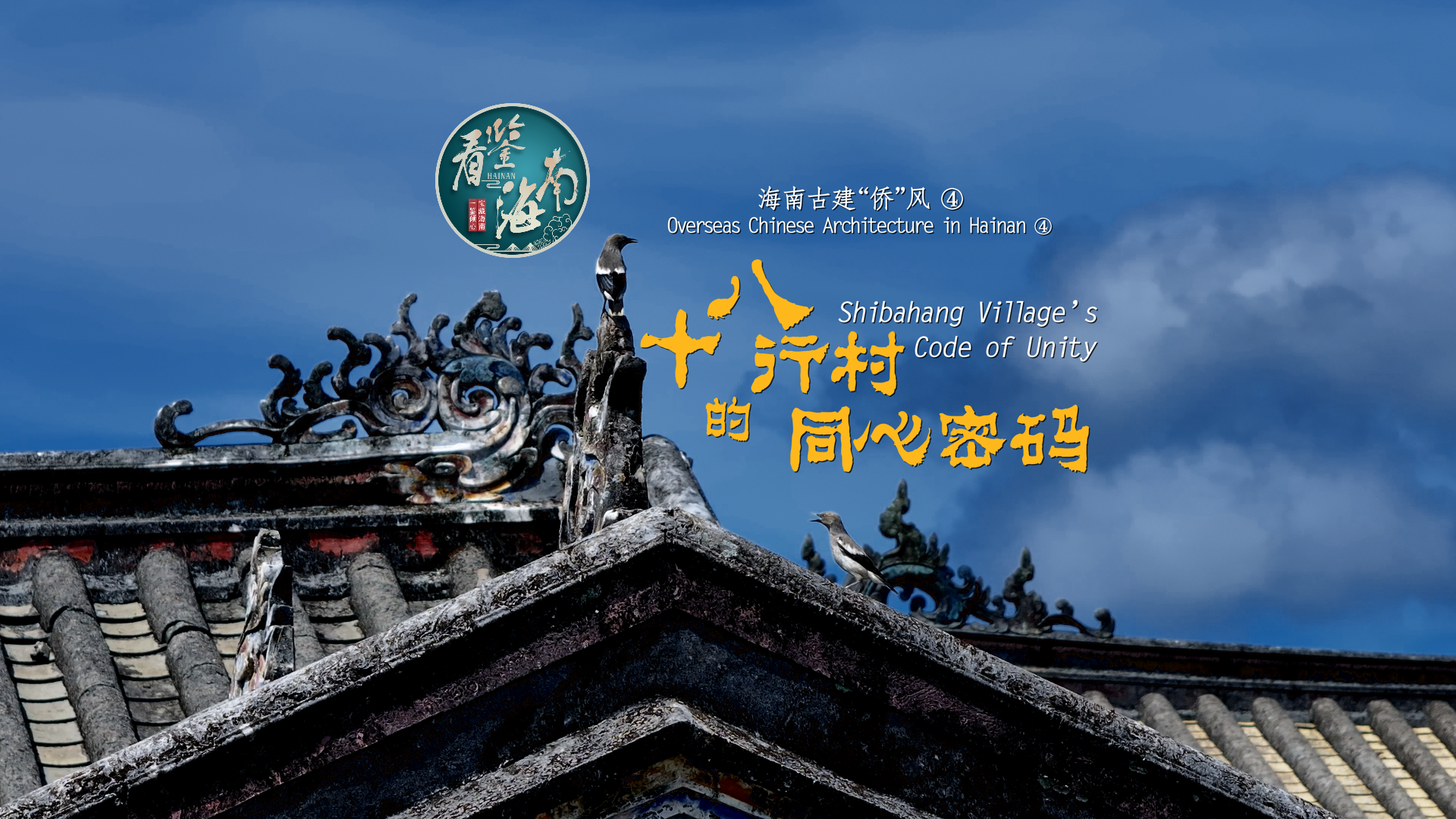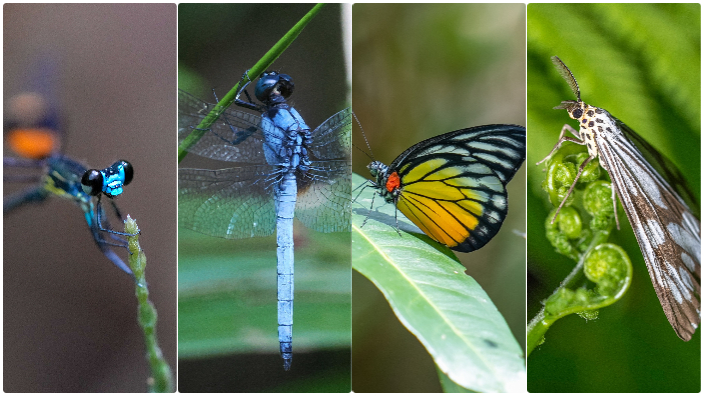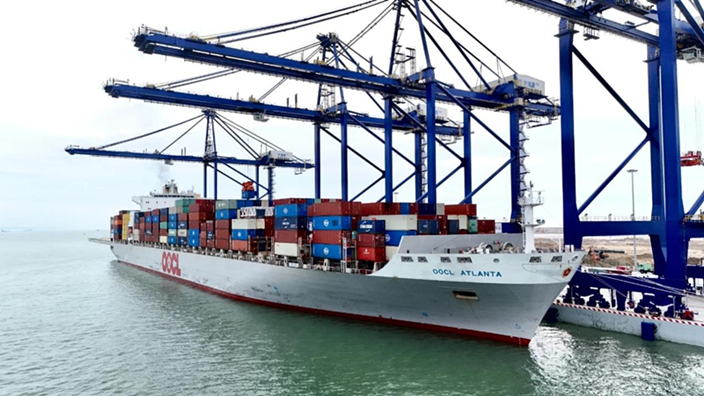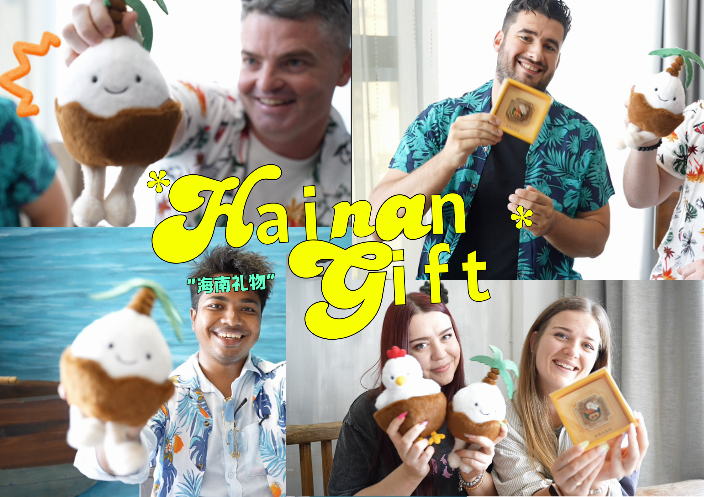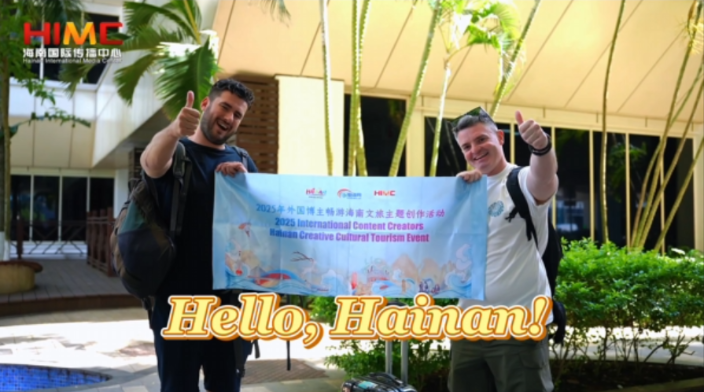
2025 marks the first Chinese New Year since "Spring Festival, social practices of the Chinese people in celebration of the traditional New Year" added to the Representative List of the Intangible Cultural Heritage of Humanity by UNESCO. With globalization, this holiday is more than just a traditional Chinese festival and is now appreciated by the whole world.
Exploring how both overseas ethnic Chinese and international students recreate Spring Festival's holiday atmosphere while in a foreign land, this episode will display both their attachment to and inheritance from their hometowns. Now let‘s go to Singapore and Japan and find out about the Spring Festival stories of Roy Li Quanxuan and Wang Manhe.
Singaporean Roy Li Quanyun: The Spring Festival is a time for reunion
Roy Li Quanyun, a third-generation Hainanese from Qionghai, was born in Singapore. He now has investment projects in both Singapore and Hainan. As the president of the Singapore China Investment Group, and a partner in Hong Kong Fengyi Group, he is very busy with work. However, Spring Festival is of great significance to him.
Spring Festival, according to the way he looks at things, is the best time to reunite with family, relatives and friends. Smiling, he said, "I’m often traveling. Spring Festival is the only time I get to rest and enjoy time with my friends.” During the holiday period, his schedule is packed. On New Year's Day, the younger generations and children of relatives will come to pay New Year's greetings. Everyone is happy and smiling. On the second day of the holiday, he goes to his relatives' houses to send New Year's greetings to the elders. On the third day of the Lunar New Year, he participates in large-scale community activities with many people.
In terms of purchasing New Year goods, Mr. Li feels that there are too many people shopping for the same things and it's difficult to buy good New Year products. For food ingredients he might go to supermarkets or local wet markets a week or two in advance. In Singapore, a lot of the food is imported from China. Chinese food is not expensive compared to products imported from other countries. Although Singapore is not China, the ingredients found here are familiar to anyone from China, and it is easy for him find the tastes of Hainan.
This year is the first Chinese New Year since "Spring Festival, and the social practices of the Chinese people in celebration of the traditional new year” were given World Heritage status by UNESCO. On this topic, Mr. Li says: "I would like to start by congratulating China on this successful application. In the hearts of us Chinese, Spring Festival is the most important holiday. Recognition for World Heritage status means that we are valued and recognized by the international community. It also reflects China’s current strength and international status."
Wang Manhe from Japan: Nostalgia in "Yellow Lantern Peppers" and "Hainan Rice Noodles"
In Japan, Wang Manhe, president of the Japanese Hainan Association, has his own way of celebrating the Spring Festival. This year, he organized a small dinner party and invited fellow Hainanese to a restaurant to get together.
Mr. Wang said: "Our Chinese traditional festival Spring Festival has been successfully listed as a World Heritage item. I am happy down to the very bottom of my heart. In the past, our hometown association usually held an annual meeting at the end of December or beginning of January. But we didn't make any special arrangements for Spring Festival. But, this year is of special significance. It is the first Chinese New Year since “Spring Festival and its social practices” were successfully granted World Heritage status by UNESCO. To celebrate, I organized a small dinner which I invited some fellow Hainanese to so everyone could feel joy together and experience the lively atmosphere of Spring Festival while in a foreign country."
Culinarily, the two stand out items were Hainan rice noodles and Hainan yellow lantern peppers. Wang Manhe smiled and said: "Hainan rice noodles are a specialty from the island and lantern pepper sauce is their essential condiment. Without it, it just doesn’t taste right." The way he unscrewed the cap of the Yellow Lantern Chili Sauce bottle, was like someone far away opening a letter from home.
In Japan, it is very convenient to purchase ingredients from China. Hainan rice noodles, rice noodles, and the ingredients for parboiled sliced chicken are all available in local supermarkets There are also all kinds of snacks and sweets produced by Hainanese brand Chunguang which allow them to taste the flavors of their hometown even though they are in a foreign country..
However, Japan does not celebrate the Spring Festival. They celebrate western New Year's. During this Chinese holiday period, people in Japan are going to work and study the way they normally do. The atmosphere is nothing like that in China. In order to create a Spring Festival atmosphere, the hometown association holds a party every New Year's Day. They also launch a "rain of hongbao" in the hometown chat group so everyone can relive the childhood joy of receiving hongbao. Wang Manhe sighed: "Although the environment is different, we use these methods, to maintain our ties with our hometowns."
Cultural exchange: a bridge connecting hometowns and places overseas
In Singapore, Roy Li Quanyun promotes exchanges and cooperation between Hainan and Singapore. In Japan, Wang Manhe organizes hometown association activities. Although they are in different countries, the ingredients are familiar and they are using practical actions to build cultural bridges.
According to Roy Li Quanyun, Hainan's recent rapid development means that he is often sharing the new changes in his ancestral hometown with his relatives and friends in Singapore. "I hope more people understand the Hainan of today." The dinners organized by Wang Manhe have become a window for fellow Hainanese to share their lives and express their homesickness.
When talking about Spring Festival being inscribed on the List of Humanity’s Intangible Cultural Heritage, both interviewees’ answers resonate across the ocean. Roy Li Quanyun believes that the successful application for World Heritage status is a recognition of the inheritance of Chinese culture. "It has won Chinese culture a broader space for display on the world stage." Wang Manhe emphasized that this makes overseas Chinese more determined to inherit their culture. "Spring Festival is not only a memory, it is also a window for the world to understand China."
Right now, the hot scents of Bak Kut Teh fill the air in Singapore and Malaysia, the spicy fragrance of Hainan lantern pepper tickles tongues as people in Japan eat Hainanese Rice Noodles, the shelves of global supermarkets are filled with foods from China, including Hainan specialties that not so long ago would have been impossible to find outside the island, delicious sweet sour flavors soothe and sharpen feelings of homesickness, and cultural identity becomes emotional bonds that cross national boundaries.
Chief planner: Niu Xiaomin
Executive Producer: Zhou Yuan
Producer: Chen Shuhuan
Planner: Ji Yanling
Coordinators: Hu Chengyong, Chen Zhengyi, Wang Jingxuan, Zhou Shengtao
Reporter/copywriter: Yuan Yulong
External relations: Yuan Yulong, Wang Dingbin
Video Editor: Chen Yongxian, Chen Mingwen, Zhou Chenguang
Video Packaging: Yan Lechi
Intern: Ma Kangqi
Overseas Chinese Architecture in Hainan ④: Shibahang Village’s Code of Unity
05:47, 27-June-2025World Insect Week: Fantastic Flying Creatures in Hainan’s Rainforests
05:47, 27-June-2025Yangpu International Container Terminal Opens Direct Shipping Route to India
05:47, 27-June-2025It's time for Hainan "Village VA"!
03:13, 26-June-2025Surprise Delivery of Hainan Gifts!
03:13, 26-June-2025One invitation and they came to Hainan right away! Look, they are arriving!
03:12, 26-June-2025By continuing to browser our site and use the services you agree to our use of cookies, Privacy Policy and Terms of Use. You can change your cookie settings through your browser.
